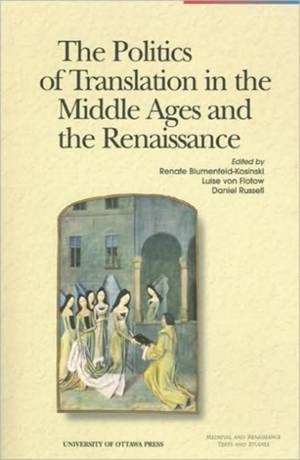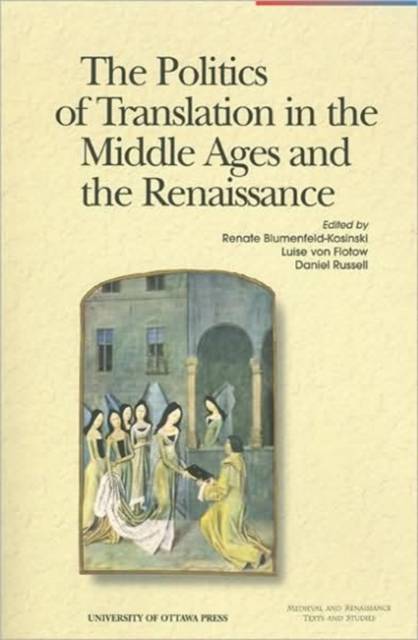
En raison d'une grêve chez bpost, votre commande pourrait être retardée. Vous avez besoin d’un livre rapidement ? Nos magasins vous accueillent à bras ouverts !
- Retrait gratuit dans votre magasin Club
- 7.000.000 titres dans notre catalogue
- Payer en toute sécurité
- Toujours un magasin près de chez vous
En raison de la grêve chez bpost, votre commande pourrait être retardée. Vous avez besoin d’un livre rapidement ? Nos magasins vous accueillent à bras ouverts !
- Retrait gratuit dans votre magasin Club
- 7.000.0000 titres dans notre catalogue
- Payer en toute sécurité
- Toujours un magasin près de chez vous
The Politics of Translation in the Middle Ages and the Renaissance
40,45 €
+ 80 points
Description
The articles in this collection focus on politics in the widest sense and its influence and visibility in translations from the early Middle Ages to the late Renaissance.
Medievalists and Renaissance scholars discuss the "cultural turn" in translation studies, which approaches translation as an activity that is powerfully affected by its socio-political context and the demands of the translating culture. The links made between culture, politics, and translation in these texts highlight the impact of ideological and political forces on cultural transfer in early European thought. While the personalities of powerful thinkers and translators such as Erasmus, Etienne Dolet, Montaigne, and Leo Africanus play into these texts, historical events and intellectual fashions are equally important: moments such as the Hundred Years War, whose events were partially recorded in translation by Jean Froissart; the Political tussles around the issues of lay readers and rewriters of biblical texts; the theological and philosophical shift from scholasticism to Renaissance relativism; or European relations with the Muslim world add to the interest of these articles. Throughout this volume, translation is treated as a form of writing, as the production of text and meaning, carried out in a certain cultural and political ambiance, and for identifiable - though not always stated - reasons. No translation, this collection argues, is an innocent, transparent rendering of the original. Published in English.Spécifications
Parties prenantes
- Editeur:
Contenu
- Nombre de pages :
- 224
- Langue:
- Anglais
- Collection :
- Tome:
- n° 233
Caractéristiques
- EAN:
- 9780776605272
- Date de parution :
- 07-03-01
- Format:
- Livre broché
- Format numérique:
- Trade paperback (VS)
- Dimensions :
- 152 mm x 229 mm
- Poids :
- 303 g

Les avis
Nous publions uniquement les avis qui respectent les conditions requises. Consultez nos conditions pour les avis.





